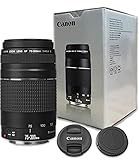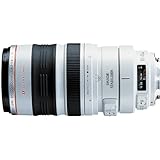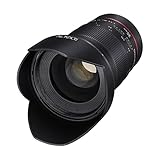What are you looking for? Let’s review and compare the top best best canon lens for bokeh 2024 to find what will work well with your needs.
We all want the best for our money, but how do you know what a good fit is without research? When looking into buying something that will likely be an investment and part of your everyday life – like best canon lens for bokeh, it makes sense to spend some time getting educated on where exactly this product falls within its market space.
We have compiled 95517 reviews from top experts that led us to these 20 devices on the list.
The Best Best Canon Lens For Bokeh Deals This Week:
- 50 millimeter focal length and maximum aperture of f/1.8
- Great for portraits, action, and nighttime photography; Angle of view (horizontal, vertical, diagonal): 40º, 27º,46º
- Minimum focusing distance of 1.15 feet (0.35 meter) and a maximum magnification of 0.21x
- Stepping motor (STM) delivers near silent, continuous move Servo AF for movies and smooth AF for stills
- 80 millimetre effective focal length on APS C cameras, 50 millimetre on full frame cameras. Lens construction: 6 elements in 5 groups
- 75-300 millimeter telephoto zoom lens with f 4-5.6 maximum aperture for Canon SLR cameras
- Improved mechanism makes zooming smoother; front part of zoom ring sports silver ring
- Measures 2.8 inches in diameter and 4.8 inches long; weighs 16.8 ounces; 1-year warranty
- 4.9-foot closest focusing distance; 32- to 8-degree diagonal angle of view
- Image Stabilization: No
- Compact, Lightweight Fixed 50 millimeter Focal Length Lens.
- Large F, 1.8 Aperture for Low-Light Photography and Creative Background Blur
- A Stepping Motor (Gear-Type STM) Provides Smooth and Quiet Continuous AF During Video Recording, As Well As When Shooting Photos
- Control Ring for Direct Setting Changes
- Optimized Lens Placement and Coatings Help Deliver Outstanding Color Balance, While Minimizing Ghosting and Flare
- Ultra-wide-angle zoom lens opens the door to creative wide-angle video and still imagery for Canon EOS APS-C camera users.
- Focal range of 10-18mm (16-29mm equivalent) is great for shooting in tight spaces so the subject and background can be captured in a single frame.
- Wide angle of view works beautifully for vlogging and selfies without the need of a long selfie stick.
- Completely new optical design, optimized for mirrorless — outstanding image quality throughout the image, from center to periphery
- Maximum magnification of 0.23x in AF mode and 0.5x in MF mode for impressive close-up video and still images of small objects.
- Bright f/2 Aperture Mid-telephoto Macro RF Lens with Beautiful Bokeh.
- Maximum Magnification of 0.5x and Minimum Focusing Distance of 1.15 ft.
- Optical Image Stabilization with up to 5 Stops of Shake Correction.
- Hybrid IS Compensates for Angular and Shift Camera Shake during Macro Shooting.
- Control Ring for Direct Setting Changes.
- Wide angle lens for Canon APS C cameras (equivalent to 38 millimeter on a full frame camera)
- Focal length & maximum aperture: 24 millimeter 1:2.8, maximum magnification of x0.27
- Slimmest and lightest lens of the EF S series
- Circular aperture (7 blades) delivers beautiful, soft backgrounds
- Full time manual focus allows manual focus adjustment while in One Shot AF mode
- Focal Length & Maximum Aperture - 18-55mm f/3.5-5.6 II
- Lens Construction - 16 elements in 12 groups, including UD-glass and aspherical lenses
- Diagonal Angle of View - 74 20' - 7 50' (with APS-C image sensors)
- Focus Adjustment - Gear-driven
- New Lens Comes In White Box (Never Used)
- EF Mount; Aperture Range: f/4-45; DC Autofocus Motor; 4.9' Minimum Focus Distance; 58mm Filter Thread Diameter
- 4.9-foot closest focusing distance; 32- to 8-degree diagonal angle of view
- Measures 2.8 inches in diameter and 4.8 inches long; weighs 16.8 ounces
- Improved mechanism makes zooming smoother; front part of zoom ring sports silver ring.
- High magnification, compact and lightweight EF-S telephoto zoom lens with Image Stabilization for up to 3.5 equivalent stops of shake correction. Based on CIPA (Camera & Imaging Products Association) standards. Testing performed using EOS 7D at focal length of 250 millimeter (400 millimeter in 35 millimeter equivalence).
- One UD lens element reduces chromatic aberration throughout the zoom range, for excellent image quality with high resolution and contrast.
- New six-group zoom system provides a compact design while achieving a maximum magnification of 0.29x at the telephoto end.
- Minimum focusing distance: 2.79 feet; 0.85 meter (full zoom range).
- Kit Inlcudes lens, lens cap E-58II, lens dust cap E, instruction book, warranty card
- World’s First Medium Telephoto Macro Lens with a Maximum Magnification of 1.4x.
- High Image Quality and Bright, fixed f/2.8 Aperture Telephoto Macro RF Lens
- Optical Image Stabilizer with up to 5 Stops of Shake Correction.
- Hybrid IS Compensates for Angular and Shift Camera Shake during Macro Shooting.
- Spherical Aberration (SA) Control Ring Allows Adjustments to Shape and Character of Foreground/Background Bokeh
- High performance, fast F1.4 aperture, "standard" 50mm prime lens with Full Frame Sensor Coverage
- Specialized Ultra Multi-Coating (UMC) improves light transmission and reduces ghosting and flare
- Internal Focusing design (IF) provides non rotating 77mm filter threads and close focusing to 17.7 Inches
- Hybrid Aspherical and Aspherical lens elements control aberrations for clear and color-accurate images
- Equipped with an 8 Blade Circular Diaphragm for pleasing Bokeh and a large rubberized focusing ring for quiet and silky smooth control of focus
- Canon EF 75-300mm f/4-5.6 III Lens - EF-Mount Lens/Full-Frame Format,Aperture Range: f/4 to f/45,Super Spectra Coating,DC Micro Motor AF System,7-Blade Diaphragm
- Versatile telephoto zoom is designed for full-frame Canon EF-mount DSLRs, however can also be used with APS-C models where it provides a 120-480mm equivalent focal length range.Super Spectra coating has been applied to individual elements to minimize ghosting and flare for greater contrast and color neutrality when working in strong lighting conditions.
- DC micro motor autofocus system is quick and pairs with an electromagnetic diaphragm to complement photographing at fast continuous speeds.Seven-blade diaphragm contributes to a pleasing bokeh quality.
- Compatible with Canon DSLR Camera and works well with Canon Rebel T1, T2, T3, T4 ,T5 ,T6,T7, Ti, T2i ,T3i, T4i, T5i ,T6i, T7i, SL1,SL2 , And Eos Models 50D , 60D ,70D, 77D, 80D, 7D , 7D Mark II as well as Full Frame Cameras such as the Canon EOS 1DX ,1DX Mark II, 5D Mark II , 5D Mark III , 5D Mark IV , 6D , 6D Mark II , 5DS , 5DS-R
- EOS 2000D, EOS 4000D, EOS 3000D, EOS Rebel T100, EOS 800D , EOS 850D , EOS Rebel T3, Eos 250D, EOS 200D, EOS 90D, EOS 750D
- Compact, lightweight EOS R series camera with an affordable price
- Smallest and lightest camera body in the EOS R series1 built for excellent mobility
- High image quality with a 24.1 Megapixel CMOS (APS-C) sensor and DIGIC 8 processor
- Dual Pixel CMOS AF covering a wide area2 up to 143 zones with auto subject detection and Eye Detection AF available with Servo AF.
- Continuous capture of up to 6.5 shots per second when set to One-Shot AF
- Focal Length & Maximum Aperture : 75-300mm 1:4-5.6
- Lens Construction : 13 elements in 9 groups
- Diagonal Angle of View : 32° 11' - 8° 15'
- Focus Adjustment : Front group rotating extension system with Micromotor
- Closest Focusing Distance : 1.5m/ 4.9 ft.
- 100-400mm telephoto zoom lens with f/4.5 maximum aperture for Canon SLR cameras
- 2 Image Stabilizer modes make it easy to capture far-off action or close-in portraits
- Flourite and Super UD-glass elements largely eliminate secondary spectrum
- Compatibility with extenders 1.4x II and 2x II; 5.9-foot close focusing distance
- Measures 3.6 inches in diameter and 7.4 inches long; 1-year warranty
- Excellent optical performance with consistent f/2.8 maximum aperture throughout the zoom range of 24–105mm
- Supports either of two optional Canon Power Zoom Adapters, enabling smooth, high- precision zoom control during movie shooting
- Eleven aperture blades, for super-smooth out-of-focus foregrounds and backgrounds.
- Iris ring (aperture control) for extremely precise lens aperture control adjustment and degree of bokeh with clickless, smooth operation.
- Close-focusing to under 1.5 feet (0.45m) at all focal lengths; maximum magnification 0.29x at the 105mm zoom setting
- Focal Length Matched Bayonet Lens Hood That's Reversible for Storage Included
- Ultra Multi Coating (UMC) For Increased Light Transmission and Reduced Internal Reflections
- Excellent Bokeh at F1.4 Aided by an 8 Bladed Diaphragm Remains Super Smooth at All Apertures
- CPU (AE) Auto Exposure Chip + Aperture Control Motor Provides Operation in All Exposure Modes and Aperture Control from the Camera Body
- Utilizes 12 High Precision Glass Lens Elements Including 1 High Refractive Index (HR) + 1 Aspherical (AS) For Superior Image Quality Even at Open Aperture
- Wide-angle, fixed focal length lens that affordably expands the EOS R system
- Fast F1.8 maximum aperture for great control over depth of field and bokeh, low-light shooting and video recording, with fast and reliable autofocus.
- Excellent image quality: highlights include a UD (Ultra-low Dispersion) glass element, one aspheric element, and Canon SSC (Super Spectra Coating) to minimize ghosting and flare.
- Minimum focus distance of approx. 5.5 In./0.14 m; close-up magnification 0.5x at minimum focus distance.
- Optical image stabilization — up to 5.5 stops* of shake correction. Up to 6.5 stops Coordinated IS when paired with EOS R series cameras featuring In-Body Image Stabilizer (IBIS).
- 【Features】YONGNUO YN50MM F1.8C II, standard prime lens for Canon. F1.8 Large Aperture, 6 elements in 5 groups, 58mm Filter diameter, 7pcs Aperture blades, Auto Focus and Manual Focus (AF / MF)
- 【0.35m Closest Focusing Distance】Compared with the first generation, the closet focusing distance of this YN-50mm F1.8C II is shortened to 0.35m. You can get closer to the object for photography and enlarge the object.
- 【F1.8 Bright Aperture, support AF and MF】This 50 mm 1.8C II Maximum aperture F1.8, bokeh effect is easily achieved, which brings you more fun during photographing. Supports auto focus and manual focus. The focus mode can be selected according to practical requirement.
- 【7 circular aperture blades】YN-50mm F1.8 C II has 7pcs of aperture blades, which helps to take picture of circular defocused spots or helps to stop down and take picture of 14-star effect.
- 【USB-free Firmware Upgrade, Durable Metal Mount】Firmware of this YN-50 mm lens can be upgraded through camera instead of using USB port (Note: this function needs to be supported by camera). Adopts chrome-plated and high-accuracy metal mount. It’s wearable, corrosion-resistant, and highly consistent with the body of the camera.
How We Test Best Canon Lens For Bokeh?
We test best canon lens for bokeh by using it for a scene. Then we review the footage to see how it looks and feels. We also consider how easy or difficult it is to use best canon lens for bokeh. We want to make sure that the gear we recommend is high quality and will help you make great films. So far, we’ve tested cameras, lenses, tripods, stabilizers, gimbals, audio equipment, etc. We’re always testing new gear and updating our reviews to help you find the best best canon lens for bokeh for your needs.
The Role Of Technology Gear In Filmmaking
There is no definitive answer to this question. Technology has both advantages and disadvantages when it comes to filmmaking. On the one hand, technological advances have made it possible to create increasingly complex and stunning visual effects. On the other hand, technology can also be a hindrance to filmmakers, as it can be difficult to control and often expensive. Ultimately, it is up to the individual filmmaker to decide how to use technology in their work. Some directors embrace new technologies wholeheartedly, while others prefer to keep things more old-fashioned. There is no right or wrong answer – it all comes down to personal preference.
Some of the advantages of using technology in filmmaking include:
- Increased control over the final product: Technology allows filmmakers more control over their work, as they can now create exactly the effect they are looking for.
- Greater flexibility: Technology also gives filmmakers greater flexibility in shooting and editing their films. They can now experiment with different techniques and methods without worrying about the cost or the time involved.
- Improved quality: Technology has also led to an improvement in the overall quality of films. With more sophisticated equipment and software, filmmakers can now create better-looking and sounding films.
- Increased audience engagement: Technology can also help to engage audiences more with films. For example, interactive features such as virtual reality can immerse viewers in the film world and make them feel more connected to the characters and story.
Some of the disadvantages of using technology in filmmaking include:
- Cost: One of the biggest disadvantages of using technology in filmmaking is the cost. New equipment and software can be very expensive and often need to be updated regularly.
- Time-consuming: Technology can also be time-consuming, as filmmakers often need to spend hours learning how to use new software or equipment.
- Difficult to control: Another downside of technology is that it can be difficult to control. This is especially true of complex visual effects, which can often go wrong if they are not managed correctly.
- Can be disruptive: Technology can also be disruptive on set, as it can sometimes be difficult to keep track of all the elements that need to be managed.
There are a number of benefits to using best canon lens for bokeh, whether it is for amateur or professional use. best canon lens for bokeh will bring you some of the top benefits. Of course, it is important to remember that you don’t need the most expensive gear to produce good results – it is more important to know how to use what you have to its fullest potential. Nevertheless, if you can afford it, investing in some quality gear will definitely pay off in the long run.
About Lenses- Things Should You Know Before Purchase Best Canon Lens For Bokeh
A camera’s lens can be classified into prime and zoom. A prime lens has a fixed focal length, while a zoom lens has a variable focal length. Prime lenses are often sharper and have less distortion than zoom lenses, but they can be more limiting because you can’t change the magnification. Zoom lenses are more versatile but can be less sharp and have more distortion. There are also special-purpose lenses, such as fisheye lenses, which have very wide angles of view.
When choosing a lens for your camera, you’ll need to consider the following factors:
- Focal length: This is the distance from the lens to the sensor, which determines the image’s magnification. A shorter focal length will result in a wider field of view, while a longer focal length will result in a narrower field of view.
- Aperture: This is the size of the opening in the lens through which light can pass. A larger aperture results in more light being let in, which is helpful in low-light situations. A smaller aperture results in less light being let in, which can be helpful for avoiding blur in images.
- Image stabilization: This is a feature that is designed to reduce blur in images, and it is available on some lenses.
- Lens mount: This is the type of mount that is compatible with your camera. You’ll need to make sure that the lens you choose has the correct amount for your camera.
Focal length and aperture are the two main factors to consider when choosing a lens for your camera. If you’re not sure which focal length or aperture to choose, you can ask a salesperson for help. You should also be aware that some lenses are not compatible with all camera types. For example, a lens designed for a DSLR camera may not be compatible with a mirrorless camera. When in doubt, it’s always best to check with the manufacturer to make sure that the lens you’re considering is compatible with your camera.
What Are The Criteria For The Selection Of A Best Canon Lens For Bokeh?
There are a number of factors that we consider when selecting a best canon lens for bokeh. One of the most important criteria is how well the product performs in tests, while others are selected based on how they perform in real-world scenarios. We also look at the price of the product, as well as its availability. Another important factor is whether the best canon lens for bokeh is environmentally friendly. We select products that meet our high standards for quality and performance.
Testing is important to ensure that products work as intended. In order to test these products, we use a variety of methods. One method is to test the product in a simulated environment. For example, we might test a product’s ability to withstand high temperatures by using it in a sauna. We might also test its ability to resist water damage by taking it out in the rain, etc.
How To Choose The Best Best Canon Lens For Bokeh?
When choosing the best best canon lens for bokeh, it is important to look at a variety of factors. The most important criteria are how well the product performs in tests and how environmentally friendly it is. Other important factors include the price and availability of the product. Other important factors include the price and availability of the product. You should also consider whether the product is durable and easy to use. When looking at all of these factors, you can make the best decision for your needs.
- Consider feature and performance of best canon lens for bokeh
- Consider about price, especially if it’s a luxury item
- Consider whether it’s readily available or needs to be special ordered
- Check out the best canon lens for bokeh reviews
- Is a best canon lens for bokeh necessary?
- What can you use instead of a best canon lens for bokeh?
- Is the best canon lens for bokeh environmentally friendly?
- Brand Repute
- Personal Preferences
- Resale
The best best canon lens for bokeh for you is the one that meets your needs and fits your budget. Consider all the factors before making a decision to ensure you are getting the best product for your needs.
It’s a great idea to consider other people when buying something because it can save you money and help you avoid wasting your hard-earned cash on an item that doesn’t work. Before making any purchases, always ask yourself these questions: “What will this decision cost me?” or “How much time does this purchase need from my life”? You should also consult those close by – friends who have similar tastes as yours may provide insight into whether they would want something too.
Should You Buy Best Canon Lens For Bokeh Online Or in A Physical Store?
There are a number of reasons you should buy best canon lens for bokeh on the e-commerce market. Some of the benefits include:
-A wide selection of best canon lens for bokeh to choose from
-Easy returns and refunds
-Fast, free shipping on many items
-Access to Prime memberships
-Save your time
It offers a wide selection of best canon lens for bokeh, which means you can find what you’re looking for. The return process is easy, and you can get a refund if you’re unsatisfied with a product. Shipping is fast and free on many items, and you can also access Prime memberships. All of these factors make the e-commerce market a great place to shop.
When buying a product at a physical store, you can often get help from a salesperson if you have questions or need assistance. You can also see the product in person before making a purchase.
7 Tips For Buying Best Canon Lens For Bokeh Online Safely
The holidays are just around the corner, and with them come traditional headaches on how to buy the best best canon lens for bokeh. Shops filled with endless queues or a lack of time can make it difficult to find affordable ones that will be useful enough! Luckily there’s an easier way – shopping online, where you get access 24/7 without having to go out.
Do Your Research
Before you make a purchase online, be sure to do your research and read reviews to learn about the product and the seller. Only buy from reputable websites that you trust.
Use a Credit Card
When making a purchase online, use a credit card instead of a debit card. This way, you can dispute any unauthorized charges made to your card.
Beware of Fake Websites
When you are on a website you are about to purchase from, be sure to look at the URL. If it starts with https://, this means the site is secure, and your information will be encrypted.
Check the Seller’s Rating and Reviews
Before buying best canon lens for bokeh, be sure to check the seller’s rating and read reviews to learn about their products and service. Only buy from sellers with high ratings and positive reviews.
Make Sure the Site Uses Encryption Technology
When purchasing online, only buy from websites that use encryption technology. This will ensure that your information is safe and secure.
Read the Terms and Conditions Before You Buy
Before making a purchase, be sure to read the terms and conditions of the website. This will help you understand the seller’s return policy and any other policies that may apply to your purchase.
Keep your Computer Protected with Anti-virus Software
Make sure to keep your computer protected with anti-virus software to help prevent any malware or viruses from infecting your system.
The convenience here is amazing because now anyone who needs something quick anytime, anywhere has easy accessibility while still being able to compare prices from different websites. You can get the best best canon lens for bokeh much simpler than ever before!
Bottom Line about Best Canon Lens For Bokeh
When you purchase best canon lens for bokeh, it’s important to consider whether or not the item will actually serve its purpose. Sometimes we may think that an acquisition is necessary when really there are other options available at a lower cost, which would suffice just as well with no loss in value–reviewing these alternatives beforehand can help avoid wasting money on unnecessary purchases later down the line.
You won’t want to miss out on this! Visit us now and find the perfect product for your needs.




















